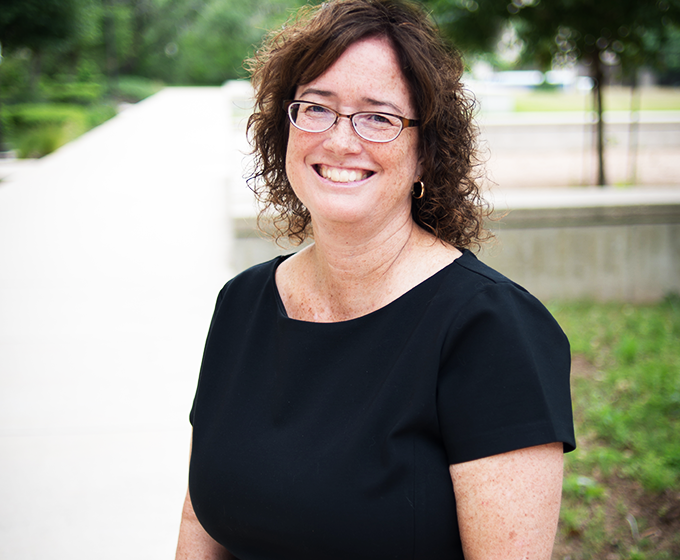
JUNE 1, 2021 — Editor’s note: This op-ed by Mary McNaughton-Cassill, psychology professor in the UTSA College for Health, Community and Policy, originally appeared in the San Antonio Express-News.
Covering our faces with masks is nothing new. In the course of human history they have been used to repel supernatural forces, to obscure disfigurement and preserve the anonymity of the wearer, and as props in religious and social events. In more modern times, they have also been used to protect people from environmental threats and illness.
However, during the current pandemic there has been a lot of confusion about who should wear masks, when they should be worn, and even which types of masks are most effective. The advice being given has changed over time, and the political spin put on their use hasn’t helped either.
Nevertheless, most of us have put up with the hassle and discomfort, expanded our mask collections and became accustomed to collecting our wallet, our keys, our cell phones and our masks before leaving the house.
But now that vaccination rates are increasing and COVID-19 rates are decreasing, the mask rules are changing. For some people, this is a welcome relief. For others, the thought of going out without their face covered makes them feel vulnerable and anxious.
While it would seem that this should be a personal choice, the hostile nature of the debate about masks can make people feel uncomfortable and hesitant to wear — or not wear — a mask in settings where their choice clashes with what others are doing.
Perhaps it would help if we bypassed all of the emotion and rhetoric around the topic and instead approached the issue the way we would any other important decision.
When you are thinking about buying a car, you assess your needs, research what is available in your price range, and make a decision based on the pros and cons of your options. When it comes to mask-wearing, we need to make the same sort of informed choices. Your personal health, vaccine status, levels of interaction with people who are vulnerable to the virus, comfort wearing a mask, and tolerance for risk all matter.
We would laugh at the idea that a family with small kids, a young single person, and an older couple would all need the same type of car. The same is true with masks. As a society, we need to be mature enough to let people make the choice that works for them. Turning mask-wearing into an artificial contest about beliefs or moral integrity only prolongs the pain of the pandemic.
UTSA Today is produced by University Communications and Marketing, the official news source of The University of Texas at San Antonio. Send your feedback to news@utsa.edu. Keep up-to-date on UTSA news by visiting UTSA Today. Connect with UTSA online at Facebook, Twitter, Youtube and Instagram.
Move In To COLFA is strongly recommended for new students in COLFA. It gives you the chance to learn about the Student Success Center, campus resources and meet new friends!
Academic Classroom: Lecture Hall (MH 2.01.10,) McKinney Humanities BldgWe invite you to join us for Birds Up! Downtown, an exciting welcome back event designed to connect students with the different departments at the Downtown Campus. Students will have the opportunity to learn about some of the departments on campus, gain access to different resources, and collect some giveaways!
Bill Miller PlazaCome and celebrate this year's homecoming at the Downtown Campus with food, games, giveaways, music, and more. We look forward to seeing your Roadrunner Spirit!
Bill Miller PlazaThe University of Texas at San Antonio is dedicated to the advancement of knowledge through research and discovery, teaching and learning, community engagement and public service. As an institution of access and excellence, UTSA embraces multicultural traditions and serves as a center for intellectual and creative resources as well as a catalyst for socioeconomic development and the commercialization of intellectual property - for Texas, the nation and the world.
To be a premier public research university, providing access to educational excellence and preparing citizen leaders for the global environment.
We encourage an environment of dialogue and discovery, where integrity, excellence, respect, collaboration and innovation are fostered.